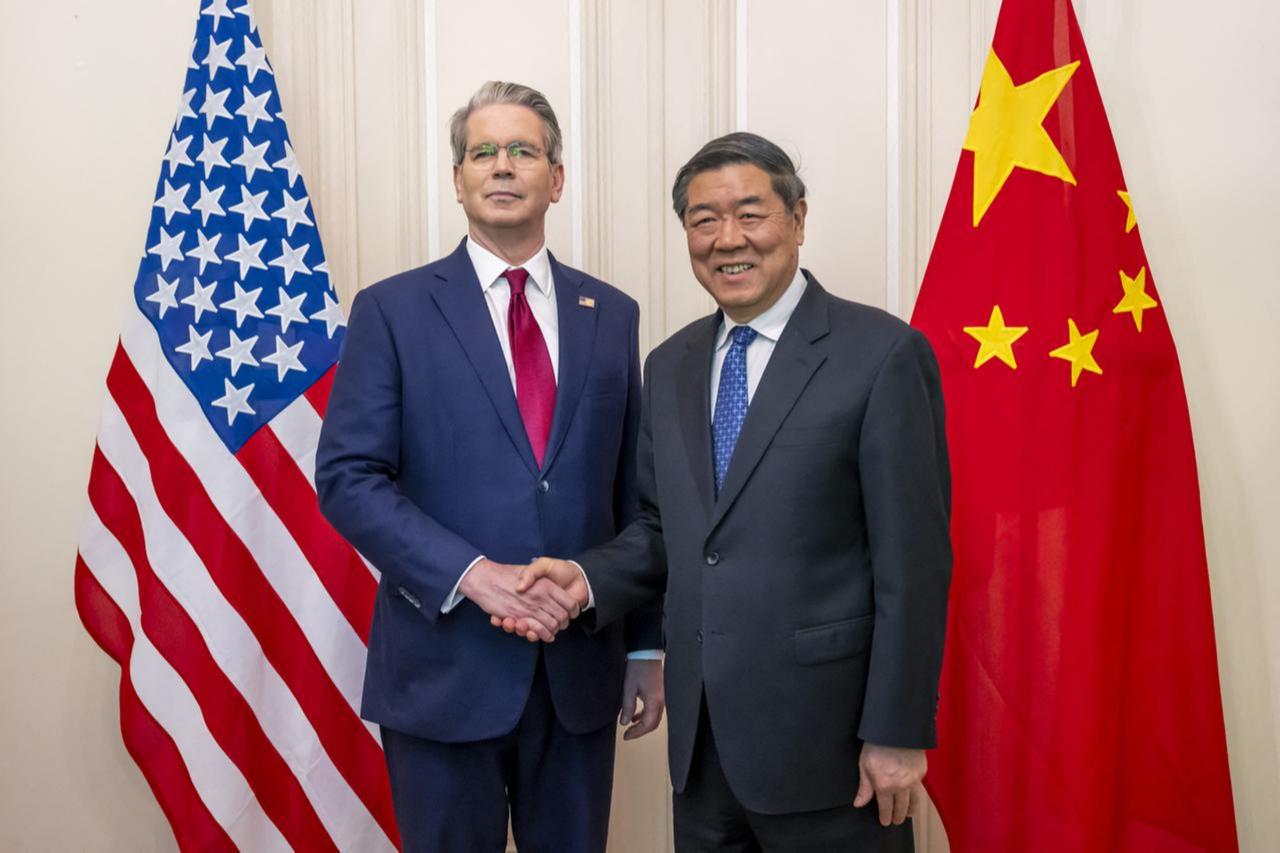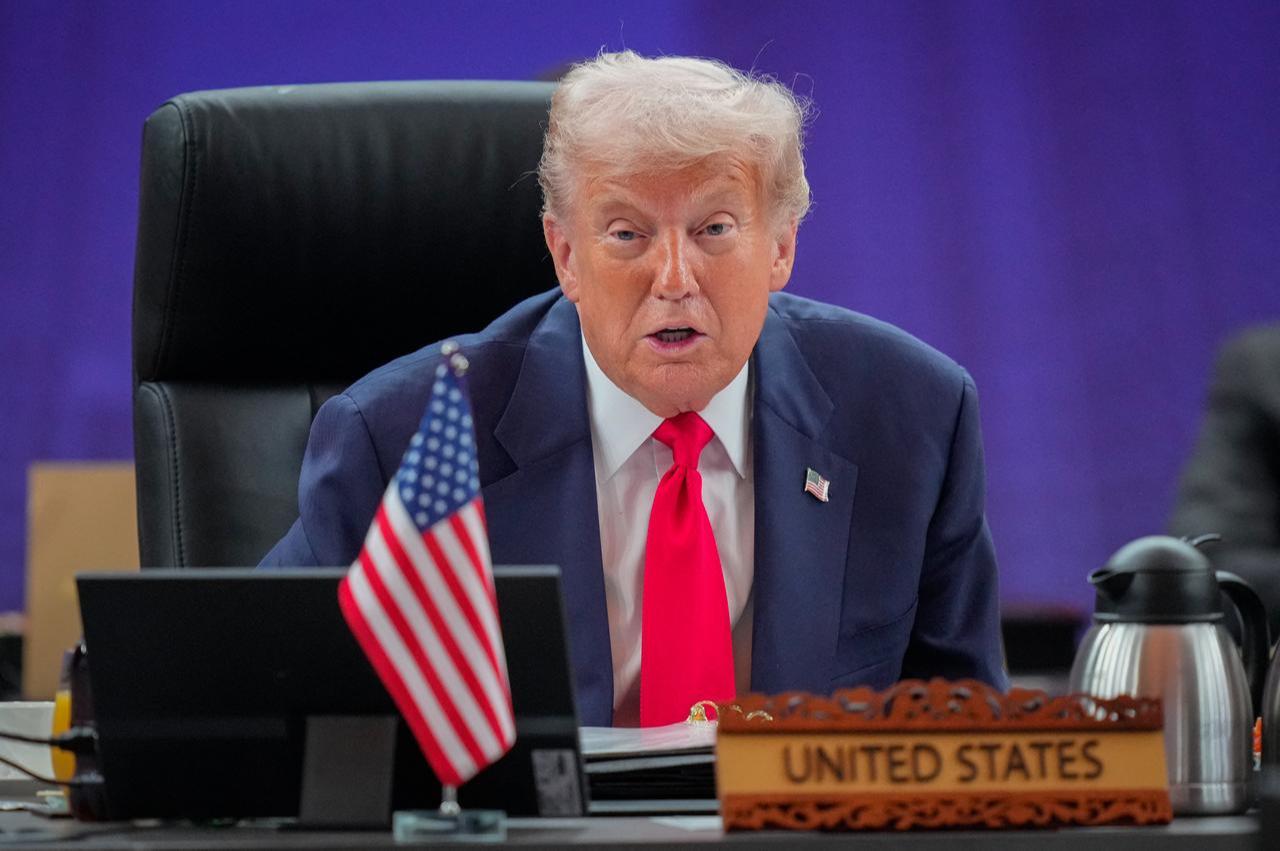
Top economic officials from the United States and China moved closer to a trade deal on Sunday in Malaysia during a second day of negotiations, according to US Trade Representative Jamieson Greer.
The talks, held on the sidelines of the Association of Southeast Asian Nations (ASEAN) summit in Kuala Lumpur, brought together Vice Premier He Lifeng for China and Treasury Secretary Scott Bessent for the United States.
The meeting marked the fifth round of negotiations following earlier sessions in Geneva, London, Stockholm, and Madrid.
Greer said that the two delegations are "getting to a point where we have something we can present to the leaders for their consideration." Greer said the sides discussed extending their current tariff truce, which is set to expire on Nov. 10, as well as issues surrounding rare earth minerals and broader trade cooperation.
In May, Washington and Beijing agreed to a temporary halt in their tariff increases—the third such truce since the United States raised import duties to 145% and China retaliated with tariffs of up to 125% on U.S. goods.
In August, both sides extended the deadline until November; however, in early October, President Donald Trump threatened to impose 100% tariffs on China if it continued to pursue rare earth export restrictions or if the talks stalled and no agreement was reached before the deadline.
Greer noted that discussions in Kuala Lumpur, which lasted more than five hours on Saturday, focused on finalizing the framework of a deal that could be presented to Trump and Chinese President Xi Jinping at their upcoming meeting in South Korea. "I think we're moving forward to the final details of the type of agreement that the leaders can review and decide if they want to include together," he told reporters.
U.S. Treasury Secretary Scott Bessent said officials from both sides had set a "very positive framework" ahead of crucial trade talks between President Donald Trump and Chinese Premier Xi Jinping in South Korea this week.
"I would describe it as constructive, far-reaching, in-depth, and giving us the ability to move forward and set the stage for the leaders' meeting in a very positive framework," Bessent said, adding that any extension of the current trade truce would ultimately be "President Trump's decision."

Meanwhile, U.S. President Trump arrived in Kuala Lumpur on Sunday as ASEAN began its 47th summit. He was welcomed by Malaysian Prime Minister Anwar Ibrahim before the two held bilateral talks at the Kuala Lumpur Convention Center.
Trump, alongside Anwar, is also expected to witness the signing of a peace accord between Cambodia and Thailand following border clashes earlier this year.
The U.S. president will travel next to South Korea, where he and President Xi are scheduled to meet on Thursday during the Asia-Pacific Economic Cooperation (APEC) forum. Trump told reporters aboard Air Force One that he and Xi have "a lot of things to discuss," adding that "they have to make concessions. I guess we would, too. We’re at 157% tariff for them. I don’t think that’s sustainable for them, and they want to get that down, and we want certain things from them."
The Kuala Lumpur meeting adds momentum to efforts by Washington and Beijing to stabilize trade relations after years of tariff escalation. Both sides appear to be seeking a framework that would allow for the gradual reduction of duties while addressing contentious issues such as rare earth supply chains and market access.
Trump is also expected to discuss a pending trade deal with South Korea, which he said was "pretty close to being finalized," according to Bloomberg News.
The coming week’s APEC summit in South Korea is widely viewed as a potential turning point for trade relations between the two largest economies, with negotiators aiming to deliver a preliminary framework for approval by both leaders.